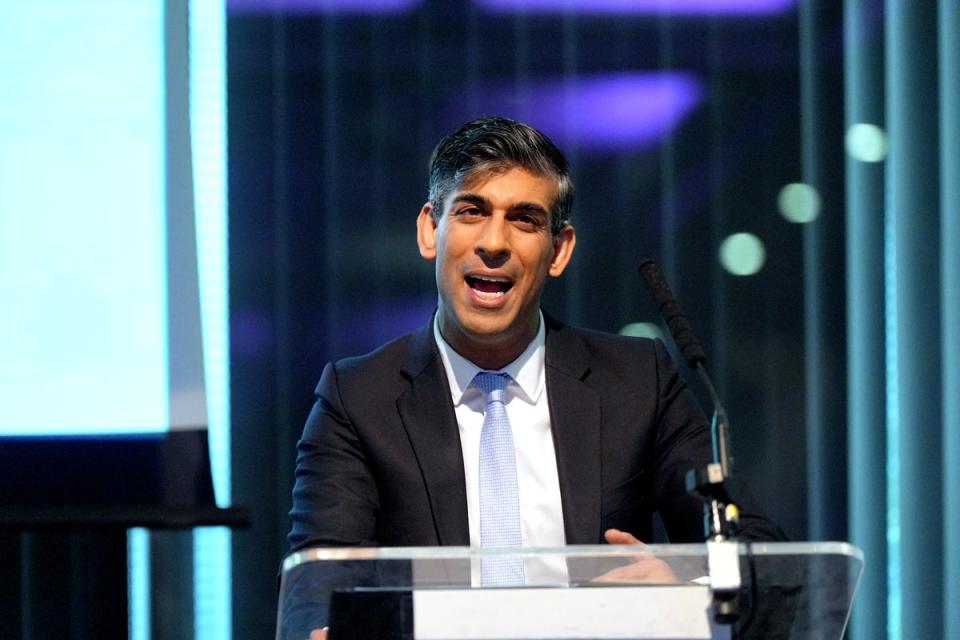How will success and failure unfold for Labour and Conservatives in the local elections?
The final set of local elections before the looming general election offers parties a final litmus test of their electoral prospects before the nation decides who they want hanging the curtains in No.10.
But interpreting local election results requires nuance. Historically, challenger and fringe parties often outperform expectations, driven by localised issues and lower turnout.
Still, locals can provide insight into broader political trends. These results serve as a barometer of the national mood and potential shifts.
This set of locals may set hares running. Rishi Sunak is holding together a divided majority, with murmurs of a leadership challenge looming if losses prove substantial. Speculation is swirling about the possibility of an early general election.
Labour’s commanding poll lead suggests inevitable Conservative losses, but the tipping point for altering the party’s course remains uncertain. So, what scenarios constitute disaster or triumph?
Delving into the key benchmarks, The Independent dissects where success and failure lie for Labour and the Conservatives.

When are the elections?
Voters in England will go to the polls on May 2 to elect more than 2,600 councillors and 10 metro mayors. The results will slowly trickle in from the early hours of Friday morning onwards, with the final declarations not expected until Sunday afternoon .
Labour and the Conservatives are defending just under 1,000 seats each, the Liberal Democrats about 400 and the Greens just over 100. Police and crime commissioners in England and Wales are also up for election.
What are we expecting?
The Tories are facing the prospect of a landslide defeat, as local election experts Colin Rallings and Michael Thrasher estimate the Tories could lose half of its 1,000 council seats.
Robert Hayward, a Conservative peer and election expert, puts the figure at slightly less – around 400. In a press briefing Lord Hayward conceded this would still be a “bad night”, but warned that Labour may also face some challenges.
Though Labour is expected to make some substantial gains - between 200-250 seats - disappointment may come on two fronts. The two parties are going neck-and-neck on the Teesside and West Midlands mayoralties, and Labour risks ceding a number of council seats to the Greens or pro-Gaza independents.
Councils
Labour is expected to perform particularly well as many councils up for election are situated in Labour heartlands and the Red Wall. Labour will be particularly hoping to make strides in Dudley, Bolton and Hartlepool.
As a useful benchmark, the party will be hoping for a result that emulates the 1996 local elections, the precursor to Tony Blair’s landslide victory. At this time the party gained a vote share of 43 per cent, with John Major’s Conservative Party losing 607 seats.
But, as Lord Hayward points out, Labour will be worried about progress in areas with high Muslim populations. The result of the Rochdale by-election showed that the party may sustain damage due to its position on Gaza. Of particular interest will be how Labour performs in areas of Lancashire and the West Midlands. If they cede seats to pro-Gaza independent parties, that could be particularly worrying for MPs within those constituencies come election time.
The party will also be nervous about its seats in Bristol and Sheffield - typical Labour strongholds that are now under threat from the Green vote due to student-heavy populations. Lord Hayward explained: If the Greens do well in Bristol and Sheffield “it will show there is another wind that the Labour party has to defend itself against”.
Though it is unlikely the Conservatives will come away from the locals feeling like a success, Lord Hayward explains that any loss less than 400 seats will be a “relief” to the party. He added: “Overall, I expect the Tories to have a bad night but it will not be a blow out for Labour. The (new) disruptors will probably have a greater impact on Labour than the Tories.”
Mayoralties
Voters in England will choose 10 metro mayors, with the North East, York and North Yorkshire, and the East Midlands electing them for the first time.
Labour’s number one target is the West Midlands, where the party hopes to unseat long-serving Andy Street, the Conservative mayor who is seeking a third term. Labour’s candidate is a former businessman, Richard Parker.
When Keir Starmer launched his local election campaign in Dudley last month, he declared: “You can take it from me, we’re not playing for a draw. We’re looking to win in Dudley, looking to win in the West Midlands, right across the country.”
YouGov says the outcome, at present, is too close to call, putting incumbent Andy Street at 41 per cent of the vote share versus Richard Parker for Labour at 39 per cent.
Tees Valley is another key battleground. If Labour were to unseat Ben Houchen – a rising star in the Conservative party who won 73 per cent of the vote in 2021 – this could likely trigger anger amongst Tory MPs.
Again, YouGov has Mr Houchen ahead by only the slimmest margin – 51 per cent to Labour’s Chris McEwan’s at 44 per cent.
Both Labour and Conservative officials are privately staking a great deal on these mayoralties. Some are concerned that should Labour fail to take them then doubt will be cast on their chances of a sweeping landslide at a general election, while those in the Conservative party fear losing Mr Street and Mr Houchen could trigger an almighty rebellion against Rishi Sunak.
Lord Hayward said that if the Conservatives “hold either of those two mayoralties, it’ll be a major achievement in the circumstances”.
Labour is widely tipped to keep the mayoralty in London under Sadiq Khan, but pollsters have cautioned that a narrowing lead between the Tory candidate Susan Hall and Mr Khan could strengthen Tory attacks on Labour in the capital.

“Everyone expects Sadiq Khan to win and I don’t think there’s much doubt that he will,” Joe Twyman, co-founder and director at Deltapoll told the Guardian. “But if it’s closer than the polls and conventional wisdom is expecting, I think that … will provide some sort of protection for Rishi Sunak.”
The party is expected to look at the results closely to establish similar lessons from the Uxbridge by-election, where local issues such as ultra-low emission zones tipped a Conservative victory.
The poll finds that if the election were to be held tomorrow, 46 per cent of the vote would go to Mr Khan and 33 per cent to the Conservative candidate Susan Hall.
What could happen?
For Labour, the results are a question of great or good. They are bound to make significant gains. But challenger candidates could dampen their success and highlight areas of weakness in policy. Some Labour MPs may get nervous about their chances of re-elections in areas where the Labour council presence has been weakened.
For the Tories, the consequences could be fatal. There are a number of Conservative MPs sitting on no-confidence letters, waiting for a reason to pull the trigger. Insiders warn it could take just one senior figure to push others to move against the prime minister. The pressure point will likely be the loss of West Midlands and Teesside mayoralties - the results of which will not come in until Saturday. If either Mr Street or Mr Houchen lost their seats, things could unravel quickly.

 Yahoo News
Yahoo News 
